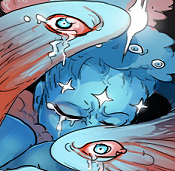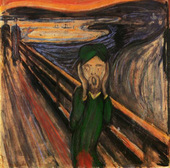|
Patter Song posted:Yes, but most of the techs that improve RGO output or just flat-out improves the country are in the Industrial and Commerce trees. I don't want not voting Moderate screwing us out of the Mechanical Production tech (whose inventions massively boost agricultural output), the various Mining techs (Coal and Iron are perennially valuable), or Medicine and its successors in the Chemistry line (Medicine dramatically accelerates population growth, slices attrition way down, and decreases those horrible disease events that can devastate a country). Agreeing that voting in whoever gets us Medicine is priority #1
|
|
|
|

|
| # ? May 31, 2024 12:13 |
|
Nah finish all the cultural and commerce tech before we get to the frivolous Army and Industry trchs.
|
|
|
|
loving love Fiona Apple posted:Nah finish all the cultural and commerce tech before we get to the frivolous Army and Industry trchs. Nah man. Naval tech. Those Commerce Raiders aren't gonna build themselves.
|
|
|
|
I've never played V2, but I can imagine reunifying Al Andalus and building a strong economic base is our best bet. Also, considering our past, Andalusi medicine is basically castrations and amputations, so maybe progress could be made there. Morocco delenda est.
|
|
|
|
You guys joke but early game commerce has some really nice boosts
|
|
|
|
Commerce is good early game, but seriously Medicine (and to a lesser extend Ideological thought) is a must-pick - population is everything in V2, and medicine is the fastest root to population growth.
|
|
|
|
|
25% starting literacy is... not quite abysmal but still really really poo poo. We desperately need to keep our education slider maxed from day one and pick up the culture techs that give more research/education efficiency. Which, luckily, it sounds like the Moderates are going to do. Even if we don't have the resource/POP base to support major factories early on, their focus on Industrial and Culture techs are still really good because a lot of the early Industry techs are about bonuses to RGO output and such rather than factories anyways, and like I just said a few specific Culture techs are gonna be absolutely vital to get ASAP so we can snowball our science. They seem very much like the swords into ploughshares party that you select once you're secure and want to start collecting a peace dividend, and hey guess what we get a free truce at the start of the game to guarantee peace. So yeah, I'm with the Moderates 100% in the first round.
|
|
|
|
The Bold Kobold posted:You ready to help damage the country with ill-advised votes?
|
|
|
|
PetraCore posted:Obviously! As someone who's never actually played a Paradox game, I'm super qualified, right? The country fragmented due to people itt knowing too much about paradox games so your probably better than everyone else
|
|
|
|
PetraCore posted:Obviously! As someone who's never actually played a Paradox game, I'm super qualified, right? What are your views on sliders
|
|
|
|
Obliterati posted:What are your views on sliders
|
|
|
|
Obliterati posted:What are your views on sliders The first season or so was okay but it got terrible real fast.
|
|
|
|
PetraCore posted:Gotta see if the mouth clips over the nose when you gently caress them up enough. You're perfect for the job.
|
|
|
|
Lynneth posted:You're perfect for the job.
|
|
|
|
Obliterati posted:What are your views on sliders they make for a pretty decent snack
|
|
|
|
Obliterati posted:What are your views on sliders i mean they're no tortoises
|
|
|
|
Mirdini posted:they make for a pretty decent snack Not if you get a crave case from Alcazar Abyad in Qadis! 30 of those suckers will fill up not only you but the whole Ummah!
|
|
|
|
Lynneth posted:You're perfect for the job. 
|
|
|
|
done, update below
hashashash fucked around with this message at 20:22 on Jun 29, 2018 |
|
|
|
|
Victoria 2 Chapter 1 - World of 1836 The world of 1836 is one full of hope and promise, with the suicide of Sahim Tirruni and the consequent Peace of Cádiz heralding the dawn of a new age - one that will see the formation and clash of nation-states, one that will witness the rise of liberalism and nationalism, and one that will inevitably be decided by the horrifying totality of war.  A hundred years still lay before us, however, and its possibilities are many and boundless. The world of 1836 is largely dominated by monarchy, with the forces of revolution ultimately quashed by Almoravid Morocco during the Tirruni Wars, but that doesn’t mean its liberal ideals have been eradicated. Not by a long shot. Starting at the centre of the world, the Iberian peninsula is steeped in history and tradition, rich with culture and religion. First coming to prominence under the legendary Jizrunid kings of old, Iberia became the capital of a world empire by the 1500s, spearheading the colonisation of the new world whilst simultaneously unifying the peninsula under one flag. Unfortunately for the Jizrunids, this golden age did not last very long before giving way to a disastrous civil war era, from which the Majlis emerged triumphant to reunify al-Andalus. The Tirruni Wars quickly followed, however, and despite a strong showing the Andalusi were technically on the losing side of the conflict, and were consequently forced to adopt monarchism once again. This is where Raed Zulfiqar comes into the picture. A national hero and beloved icon, Raed had served al-Andalus as commander and vizier for decades, leading the nation in battles against the Mahdists, Berbers and Tirruni, and emerging triumphant more often than not. For his extensive services (and because he was the most powerful man in the country), Raed was offered the crown of al-Andalus, which he accepted only reluctantly. And with that, al-Andalus stands on the brink of a new golden age, as they seek to reunify Iberia and stake their claim as a great power.   We cannot count ourselves amongst the Great Powers just yet, however. Our celebrated achievements, disciplined armies and vast industrial potential will propel us into those lofty ranks before long, but at the moment the Great Powers largely consist of the victors of the Tirruni Wars, along with the Celtic Empire and Scandinavia-Novgorod, as well as the rising powers of Ibriz in the west and Japan in the east.  And to our immediate south, we have the first of the great powers and our bitter arch-rivals: the Almoravid Sultanate of Morocco, led by the old and decrepit Sultan Yahya V. The Almoravids were the world’s undisputed superpower just a decade ago, with an impressive navy guarding a vast colonial empire that stretched from Gharbia to India to Melanesia. Much has changed since then, however - with their hard-won victory in the Tirruni Wars leaving them exhausted and bankrupt, and their perceived invincibility shattered by the Andalusi Sack of Marrakesh and the Great Gharbian Revolt. Morocco is now facing a gruelling war in the new world and a potential uprising in India, and to make matters worse, they’re also being challenged by the rising great powers of France, Hannover and Russia. The next few years will be very important for the Berbers, as they struggle to either maintain their position as a great power, or suffer a collapse of their worldwide empire.   The Andalusi and Berbers have been bitter rivals for centuries now, and conflict will likely erupt between them before long, but we also have other potential enemies to worry about further north.  First up is the Kingdom of France, ruled by Queen Julianna Roman and her parliament, who’ve managed to bring almost the entirety of England and Wales under their control over the past few years. They enter 1836 as the paragon of constitutionalism in Europe, and a great power in their own right, with a large population and strong industrial base placing them in the perfect position to dominate Western Europe.  Their primary rivals in doing that, predictably, will be the Kingdom of Hannover. Under the leadership of King August-Wilhelm, the Hanoverians have supplanted Bavaria to become the dominant German state, and now have disturbing ambitions of unifying all Germans under one flag.  If Germany is ever to unify, however, they’re going to need the Rhine - currently controlled by the Rhine Confederacy, which lies firmly within the French sphere of influence. War between the French and Hanoverians is thus inevitable, with the question now being when such a conflict will break out, rather than if.  And Hannover will have more than just the French to worry about, as the Russian Empire looms large to their east. Proclaimed by Tsarina Dobroslava Rurikid after the long, devastating War of Russian Leadership, the Russian Empire has emerged as one of the largest and strongest nations in the world. They now seek to expel Novgorod-Scandinavia from Russia, solidify their position in the Balkans, and counter any notions of German unification to their west. If they play their cards right, the next century could well be a Russian one.  With the three strongest powers of Europe covered, we can move northward, where the Empire of Scandinavia-Novgorod stretches. Ruled by the Russian ‘Roman’ dynasty, Novgorod was forced to abandon almost all their Russian territories after their devastating losses to Smolensk, with only Novgorod itself still under their control. And this certainly won’t be the end of their conflict, as Russia seeks to seize the strategic city of Novgorod and the densely-populated Baltic coastline. Scandinavia will have to proceed very diplomatically if they’re to maintain their possessions, one misstep and the Russian Empire will undoubtedly come crashing down on them.  Across the North Sea, we have the Celtic Empire, led by the ó Kildares - a dynasty that stretches back to the Middle Ages. Similarly to Novgorod, the Celts have suffered defeat after defeat in recent years, forced to relinquish their ancient claims to England and Wales in humiliating peace treaties. The Celtic Empire is now in steep decline, and unless serious reforms are undertaken very soon, they’ll find themselves nothing but a minor power before very long.  And pushing further south, we have the neighbouring powers of Provence and Bavaria. Both fell to Tirruni’s early conquests, both had vast territories restored to them during the Congress of Cádiz, and both have the potential to become great powers in their own right - if they can fend off the ambitions of the congress powers. That won’t be the only hurdle they face, however, with the age of nationalism also fast approaching. With it, the Italians under their rule will undoubtedly become unruly, desperate for a nation of their own. Revolt and revolution is on the way, and the map of Italy will likely be redrawn countless times over the next century.   Finally, we reach the Emirate of Palermo, a middling power that has managed to ride out the waves of revolution and war intact. Palermo has been ruled by the Jizrunid dynasty for centuries now, so they were rightly incensed when it was announced that Raed Zulfiqar would become the new Sultan of al-Andalus, appealing to Morocco in a futile attempt to see their claims recognised. Al Andalus swiftly shut down any notions of a Jizrunid Restoration, but there are few who believe that this will truly spell the end of their ambitions.  Across the Adriatic, we come to the Cathari Balkan Peninsula, which is dominated by three newly-rivalled powers. The Kingdoms of Hungary and Greece both suffered greatly during the Tirruni Wars, with the former sending hundreds of thousands to die at the hand of Sahim Tirruni, and the latter fighting a devastating guerrilla war against the invading Berber armies.  Both were promised vast territories as compensation for their losses, but both were spurned in the Congress of Cádiz, where the great powers decided to ignore their claims in favour of a restored Kingdom of Serbia - all done in the name of ‘peace and stability’, of course. These unresolved issues and disputed claims will not be forgotten, however, with further conflict in the Balkans now an inevitability.    With Europe covered, we can move southward, to the vast deserts and dense jungles of Africa. Exploration missions along the coastline have already been launched by several European powers, interested in acquiring prestigious colonies, and with every passing day the technological gulf between native and foreign powers grows larger.  And best demonstrating this rift are the kingdoms that stretch across West Africa, all of which are already far behind Europe and North Africa in technology. Their only safeguard at the moment is in Morocco, who are their partners in the slave trade, but it is becoming increasingly important that these nations launch modernisation programs of their own - or else face destruction at the hand of imperialism.     Further east, we have the Crusader Kingdom of Egypt and the Ethiopian Empire, old enemies and ardent rivals. A religious divide intensifies the rivalry between the two powers, as the vast majority of Ethiopia and Somalia are aligned with the Coptic Church, whilst the Apanoub dynasty of Egypt hold faith with their personal form of Catholicism. In terms of territory, the Egyptians have managed to bring vast tracts of the Sudan under their rule (mostly for slaving reasons), but they also have other rivalries to worry about, contending with the Berbers over Libya and with the Armenians over the Levant. To add to that, Muslim tensions are on the rise throughout their empire, as rebellions and revolts become increasingly frequent.   Moving on to the Levant, the region has been carved up by the Congress of Cádiz, which established two new countries as buffer states between Egypt and Armenia. At the same time, the Vali Emirate struggles to maintain despotic rule over the Shiite Arabs, the Khwarezmian Empire is desperately trying to modernise in the east, and Hejaz looks to turn their zealous warmachine northward.  The two new countries established in the Levant are the Kingdom of Outremer in the south, and the Emirate of Syria in the north. Influence wars are already being waged in these newfound countries, however, as the Egyptians install an Apanoub prince to rule Outremer in their name whilst the Armenians quickly draw Syria into their sphere of influence.   And north of that, we come to the Vakhtani Caliphate, which is increasingly referred to as simply Armenia. The Armenians had struggled with countless invasions over the past fifteen years, and were consequently forced to relinquish Thrace and Syria, but they’ve managed to weather through those dark days otherwise intact. Reconstruction efforts are already underway in Anatolia, but the region is devastated and the population is rebellious, so the Vakhtani Caliph will have to proceed patiently if he’s to retain his crown and sceptre.  The Vakhtani Caliphate borders Georgia and Azerbaijan to their west, and the Vali Emirate to the south. The Vali are a Kurdish dynasty hailing from the Zagros Mountains, who managed to gradually absorb the feuding principalities dotting Mesopotamia over the past few centuries, and now enter 1836 as the suzerains of Kurdistan and Iraq.  To the south, legitimate contenders to the caliphate have emerged in the form of Hejaz, which launched a series of invasions to unify Arabia over the past two decades. Now, the Shiite Sharifs of Mecca only have to squash the remnants of Yemen and Oman, and once all of Arabia is under their control, they can turn their attention to the oppressed Arabs to their north.  Across the Persian Gulf, meanwhile, we have the Khwarezmian Empire. A string of brutal Turkish conquests in the 1600s saw the Persian Farzadid Empire collapse spectacularly, but the region was gradually reunified by the Khwarezmians over the next few centuries, eventually declaring themselves the Khwarezm-Shahs.  Pushing east and across the great Indus River, the Indian subcontinent lies richer and more divided than ever. The Berbers have already established a powerful base in the southern half of the subcontinent, and a dozen Hindu kingdoms battle for dominance in the northwest, but the only real threat to Morocco’s colonial ambitions is in the Cedi Empire to the northeast.  The Cedi dynasty preside over a vast but stagnant empire that stretches across Orissa and Bengal, but unless they begin modernisation efforts very soon, it won’t be long before all of India falls to the Berber Raj.  Indochina is largely dominated by native kingdoms, with Buddhists prevailing in the north and Jainists in the south. Morocco has gradually been expanding their Indonesian possessions in recent years, however, absorbing the petty states in Papua and western Java with little opposition. And despite Morocco’s headstart, the region’s rich resources and weak kingdoms may well turn it into a battlefield of great powers, with several European nations waiting for the opportune moment before pouncing.  And moving further north, we come to the divided landscape of China, once called the Land of a Thousand Emperors. Now, only five remain: the native Guang, Song and Wu and Qi dynasties, and the foreign Mongols. All of them lay claim to the Mandate of Heaven, but the southern empires will have to unite through diplomacy or force if they’re going to present a significant challenge to the Mongols, who stretch across the entirety of northern China.  These five rivals are not the only powers struggling for dominance in China, however, as another player enters the fray from the east: the Republic of Japan, having overthrown their Manchu overlords in a bloody revolution, look greedily to the rich resources and dense cities of Manchuria and China. After suffering under foreign rule for so long, the Japanese are determined to make the next century theirs, convinced that their ultimate fate is to become the masters of East Asia.   Across the width of the Pacific Ocean, meanwhile, we come to the two continents of Gharbia. The northern continent is largely dominated by a struggle between two powers: the Revolutionary Republic of Ibriz, and the Kingdom of New England. Countless issues divide these vehement rivals - including religion, ideology and their stance on slavery. Both are thus determined to become the dominant power in North Gharbia, making conflict between them unavoidable.  And a third power that can cause trouble in the region is Morocco, who directly administer several large islands in the Caribbean, islands that already occupy the attentions of the sabre-rattling politicians in Ibriz.   And Neimni Sund finds itself sandwiched between them all, an unenviable position to be in. Albionoria and Anbaila are better placed further north, but even they’ve been contemplating unification, desperate to stave off any potential invasions from Ibriz and New England. Whatever happens, there is little doubt that these three plucky Irish successor states are in for a difficult century.    To the south, meanwhile, the rich and diverse continent of South Gharbia has become a ravaged battlefield.  New France and New Occitania (renamed Occidental Republic) have already wrested themselves free from their overlords in the old world, but the former Berber colonies of Imjir, Walidrar and Nuquril are still embroiled in a taxing independence war against Almoravid Morocco - a war that is already being called the Great Gharbian Revolt.  Meanwhile, a smaller conflict is brewing between the Charca Empire and the Incan Republic (renamed the Andean Republic), with the two states bitterly divided along ideological lines. These are the only native powers left in the western continent, but as tensions continue to climb, war between them becomes more likely every day. Conflict will break out sooner or later, with both now determined to become the sole native power in the Andes.   With that, we can finally come back to the Iberian peninsula and Al Andalus. Iberia is currently divided between three powers: the Sultanate of al-Andalus, the Kingdom of León-Castille and the Emirate of Qattalun. The latter two were established by the Congress of Cádiz, but the Andalusi refuse to recognise them and instead lay claim to the entirety of Iberia, making relations between the three neighbours very heated indeed. Unfortunately for the Andalusi, however, nothing can be done about it - not yet, at least. The Congress of Cádiz also established temporary truces between the congress powers, so any act of outright aggression will be met with harsh repercussions.  With the political situation across Europe and North Africa still very frail, it’s imperative for our modern country to have strong leadership. The soon-to-be-crowned Sultan Raed is the head of state, of course, but much of the power still rests with the hereditary assembly of al-Andalus: the Majlis al-Shura. So as 1836 begins, Raed summons the Majlis to form a new government, with three parties currently jostling for influence… First we have the Royalists, who are largely made up of the old nobles and clergymen whose ancestors once ruled al-Andalus with an iron fist. Now, they advocate for further empowerment of the Majlis and the Sultan, and are ardently opposed to any liberal movements. They also demand that the army be given first priority in all matters, and are determined to see al-Andalus return to its maximum historical borders in Europe.  Second, we have the Moderates, who are made up of the various petty nobles and politicians who strived to establish a stable balance of power during the Congress of Cádiz. They advocate for peace between the great powers via a defensive alliance that will stretch across Europe, and are devoted to the internal development of al-Andalus through the construction of factories, railroads etc. Industry cannot flourish where there is war, of course, so they are vehemently opposed to aggressive warfare.  Third, we have the Imperialists, a party founded by the authors of the Constitution of al-Andalus. Their long-term agenda is to steer the nation onto a more democratic path, but they are also determined to see al-Andalus retake its rightful place as a great power - and the best way to do that, they insist, is by rebuilding their colonial empire. The age of new imperialism is fast approaching, and they’re determined to be at the forefront of it.  The world of 1836 is dominated by old rivalries, full of new opportunities, bright with hopeful ideals and foreshadowed by the spectre of world war. It is anything but stable, and once the dust settles on another century, the world may well be unrecognisable to those who made it possible. ———— World map, with the government and state religion of each country labelled:  Religion doesn’t matter in vic2 though, so in future state of the world updates, I’ll replace it with country ideology instead. Culture map (province majorities):  There are a ton of minorities as well, but it’s impossible to show them all on one map. If you wanna know the specifics, just ask. Military ranks:  Industry ranks:  Prestige ranks:  Population ranks:     Population density mapmode:  Red=more dense, green=less dense. Largest economies: Slaveholding countries:    Countries with most slaves:  Countries with most soldiers: 
hashashash fucked around with this message at 23:44 on Jul 1, 2018 |
|
|
|
|
Well, that's one hell of a powderkeg
|
|
|
|
Muhammad (pbuh) once spake "always adopt a middle, moderate, regular course, whereby you will reach your target." We would do well to remember his words, and support the Moderate Party in building a prosperous and whole Andalusian nation.
habeasdorkus fucked around with this message at 20:47 on Jun 29, 2018 |
|
|
|
My apostate colleague forgets that the merciful means by which we subjugate and integrate the infidel is the very middle course our Prophet handed down to us, and that an Islamic al-Andalus is the target, not the bulging coffers of salesmen.
|
|
|
|
Can the Gharbian Irish states theoretically unify?
|
|
|
GSD posted:Can the Gharbian Irish states theoretically unify? Yep, they've got an event chain that will eventually crop up. Same goes for the Berber colonies (if they win independence) and the Andean states (theirs is more war-related).
|
|
|
|
|
quote:We better moderate quick if we don't want to gimp ourselves before the game actually begins.
|
|
|
|
First Meeting of the Majlis part2 So the way our government is currently set up (Semi-Constitutional Monarchy), we'll be voting a new party into power once every ten years. Below are the legal parties of Al Andalus in 1836, with more becoming available as the game progresses. For the in-game effects of each, I’ve listed out their different party issues (trade, economic, religious, citizenship and war policies), so you can check those out if you’re interested. But for those who don’t really know or care how Victoria 2 works, I’ve also added the “Primary Issues” and “Research Policy” for each party, which is essentially what they’ll work towards whenever they’re in power. That should help you decide who to throw your support behind. Royalists (Reactionaries) Formed from the old, powerful nobles whose ancestors had ruled al-Andalus with an iron fist, and backed by the influential ulema, the Royalist Party seeks further empowerment of the Majlis and the Sultan, and are staunchly opposed to liberal movements. Primary Issues: They’re primarily focused on securing the historical borders of al-Andalus. These nobles hark back to the days where al-Andalus had a commanding position in Europe, and they vow to one day see all of its continental territories reacquired (including the rest of Iberia, Corsica, Sardinia, and even Sicily). Research Policy: They’re focused on advancing Army technology, and expanding the sizes of both the standing and the mobilised armies. In-game policies:- Trade Policy: Protectionism - aiming to become self-sufficient, this party discriminates against foreign imports, allowing us to impose 100% tariffs on all goods crossing our borders, if we so desired. Economic Policy: Interventionism - the state will have partial control over the country’s economy, allowing us to upgrade existing factories and construct railroads. We can’t construct new factories, however, so we’ll have to rely on our capitalists for that. Religious Policy: Moralism - Sunni Islam is the one true religion, and this party actively tries to spread the faith to the religious minorities of Iberia. Citizenship Policy: Residency - immigrants and minorities can work here, but they have no political rights. Primary culture pops have full votes, accepted cultures have half-votes, and unaccepted cultures have no votes. War Policy: Pro-Military - this party seeks to expand to Andalusia’s historical borders, relying on propaganda to further their goals amongst the population. This allows us to set 100% military spending, and reduces war exhaustion effects to 70%. Political Reform: opposed to democracy and bent on empowering the Majlis, reactionaries will never support political reform, instead preferring to repeal past reforms and further centralise the state. Social Reform: reactionaries will never support social reform, and may seek to repeal past reforms. Chief Demographic: their voter base is largely made up of Aristocrats and Officers.  ——— Moderates (Conservatives) Formed from the successive governments in the waning days of the Jizrunid Sultanate, this party is devoted to maintaining the status quo, with respect to both internal Iberian politics and foreign interference. They seek internal development and close ties with neighbouring nations, but little else. Primary Issues: The policy of this party is two-pronged. First, they’re concerned with avoiding wars and maintaining the power balance between the great powers, primarily by building a vast defensive alliance web across Europe. Second, they’re devoted to investing in the internal development of al-Andalus via factories, railroads, fortresses and so on, and also improving relations abroad through foreign investment. Research Policy: They’re focused on advancing Industrial and Culture technologies, and will invest heavily in the construction of new buildings and railroads, hoping to kindle the flowering of a new renaissance in Iberia. In-game policies:- Trade Policy: Protectionism - aiming to become self-sufficient, this party discriminates against foreign imports, allowing us to impose 100% tariffs on all goods crossing our borders, if we so desired. Economic Policy: State Capitalism - seeking to turn Iberia into an industrial haven, this party retains great control over the economy, allowing us to construct and upgrade factories, and build railroads. Religious Policy: Pluralism - for a long time now, the Majlis has been devoted to guaranteeing the rights of religious minorities, and this party seeks to continue that tradition. Minority faiths will not be infringed upon at all. Citizenship Policy: Limited Citizenship - minorities have a voice in the political machinery of the state, and will become citizens after a certain period of time. Primary and Accepted culture pops have full votes, unaccepted cultures have half-votes. War Policy: Anti-Military - this party claims that war has impeded the development of Al Andalus for far too long now, and they seek to avoid future conflict whenever possible. This sets our max military spending at 75% and increases war exhaustion effects to 120%. Political Reform: determined to maintain the status quo, conservatives will generally oppose political reform, though they will submit to it if the militancy of the population rises to dangerous levels. Social Reform: they’re also opposed to social reform, but once again, they’ll submit to it if militancy is high. Chief Demographic: conservative voters largely consist of the poor and low-consciousness strata, along with some Aristocrats and Officers.  ——— Imperialists (Liberals) Once known as “Zulfiqar’s Party”, this party largely consists of the fervent supporters the former Grand Vizier (and now sultan), with its founding members helping him abolish slavery and draft the now-famous Constitution of Al Andalus. Domestically, they aim to steer the nation onto a more democratic path, as reflected in their policies. On the international stage, they seek to build on Zulfiqar’s accomplishments and finally unite all of Iberia, although they’re not interested in any further expansion in Europe. Further afield, they aim to greatly expand Andalusia’s overseas colonies, determined to see the nation rise to its former heights as a great power of the world. Primary Issues: They’re concerned with securing Iberia, with no further expansion in Europe. They’re also interested in building a new colonial empire, however, seeing it as the best way to regain and cement Andalusia’s rightful position as a great power. Research Policy: They’re focused on advancing Naval and Commerce technologies, constructing larger naval bases, and most importantly - expanding and strengthening the navy. In-game policies:- Trade Policy: Free Trade - this party allows free flow of goods across the border, this will restrict max tariffs to 25%, whilst allowing full import subsidies. Economic Policy: Laissez-Faire - this party avoids interfering with the economy, instead leaving it to capitalists to construct factories and railroads, which they can do at at greatly-reduced costs. Religious Policy: Pluralism - for a long time now, the Majlis has been devoted to guaranteeing the rights of religious minorities, and this party seeks to continue that tradition. Minority faiths will not be infringed upon at all. Citizenship Policy: Full Citizenship - after completing a relatively straightforward naturalisation process, minorities and immigrants are granted full citizenship rights. All populations thus have equal voting rights, regardless of culture. War Policy: Pro-Military - largely opposed to costly aggressive wars in Europe, this party is more interested in fighting easy wars that’ll allow them to build a new colonial empire. This allows us to implement 100% military spending, and decreases the effects of war exhaustion by 50%. Political Reform: as the liberals of the Majlis, this party will advocate for political reform whenever possible, and are ardently opposed to repealing past reforms. Social Reform: liberals aren’t so eager to support social reforms, however, only doing so when militancy is high. That said, they’re generally opposed to repealing social reforms that have already been passed. Chief Demographic: their voters are largely Capitalists and Clerks, with some Clergy and Artisans thrown in there.  ——— That's pretty much it. Pick a party and we're good to go. hashashash fucked around with this message at 21:32 on Jun 29, 2018 |
|
|
|
|
While I'm not actually a supporter of monarchy, I am a supporter of the absolute power of the Majlis! What was taken from us must be returned, and no false kingdoms or rigged Congress can keep Al-Andalus from her destiny! The Royalists it is!
|
|
|
|
The most important thing in these first ten years is to recover from decades of war; this means developing technologically, industrially, and diplomatically. As such, the Moderates are the clear answer.
|
|
|
|
Imperialists. And we should probably start taking shots at those juicy African and Indonesian uncivs before Morocco gobbles them all up.
|
|
|
|
Moderates for TRAINS
|
|
|
|
MODERATE, YOU FOOLS!
|
|
|
|
Anything but the Moderates to start is a shot in the foot of Andalus. We need those early industrial (medicine) and culture techs.
|
|
|
|
ThatBasqueGuy posted:Anything but the Moderates to start is a shot in the foot of Andalus. We need those early industrial (medicine) and culture techs.
|
|
|
|
The heart says Imperialists, but the brain says Moderates.
|
|
|
|
Moderates, we can't war for half of the first decade anyway, and it's the sensible choice. We need allies and industry! Gonna vote for royalists later though, if we can somehow get back all of the west Mediterranian islands I'll be amazed and I want to see it happen
|
|
|
|
habeasdorkus posted:Muhammad (pbuh) once spake "always adopt a middle, moderate, regular course, whereby you will reach your target." We would do well to remember his words, and support the Moderate Party in building a prosperous and whole Andalusian nation. Not an emptyquote, just actually voting.
|
|
|
|
Imperialists by going Laissez-Faire the people will understand how terrible it is and start a revolution!
|
|
|
|
The Moderates will lay the foundation upon which Al-Andalus will grow to occupy its rightful place in the post-Tirruni world.
|
|
|
|

|
| # ? May 31, 2024 12:13 |
|
We can't go to war anyways because of the diplomatic situation. Let's go Moderates for now and build up our economy and alliances. When we're ready we can put the Royalists in power and fight the wars that need to be won. If I can, however, I would suggest one thing. In addition to all the railroads we're going to be building, we should try to keep our naval bases current. You know, for trade and economic reasons, of course.
|
|
|










































